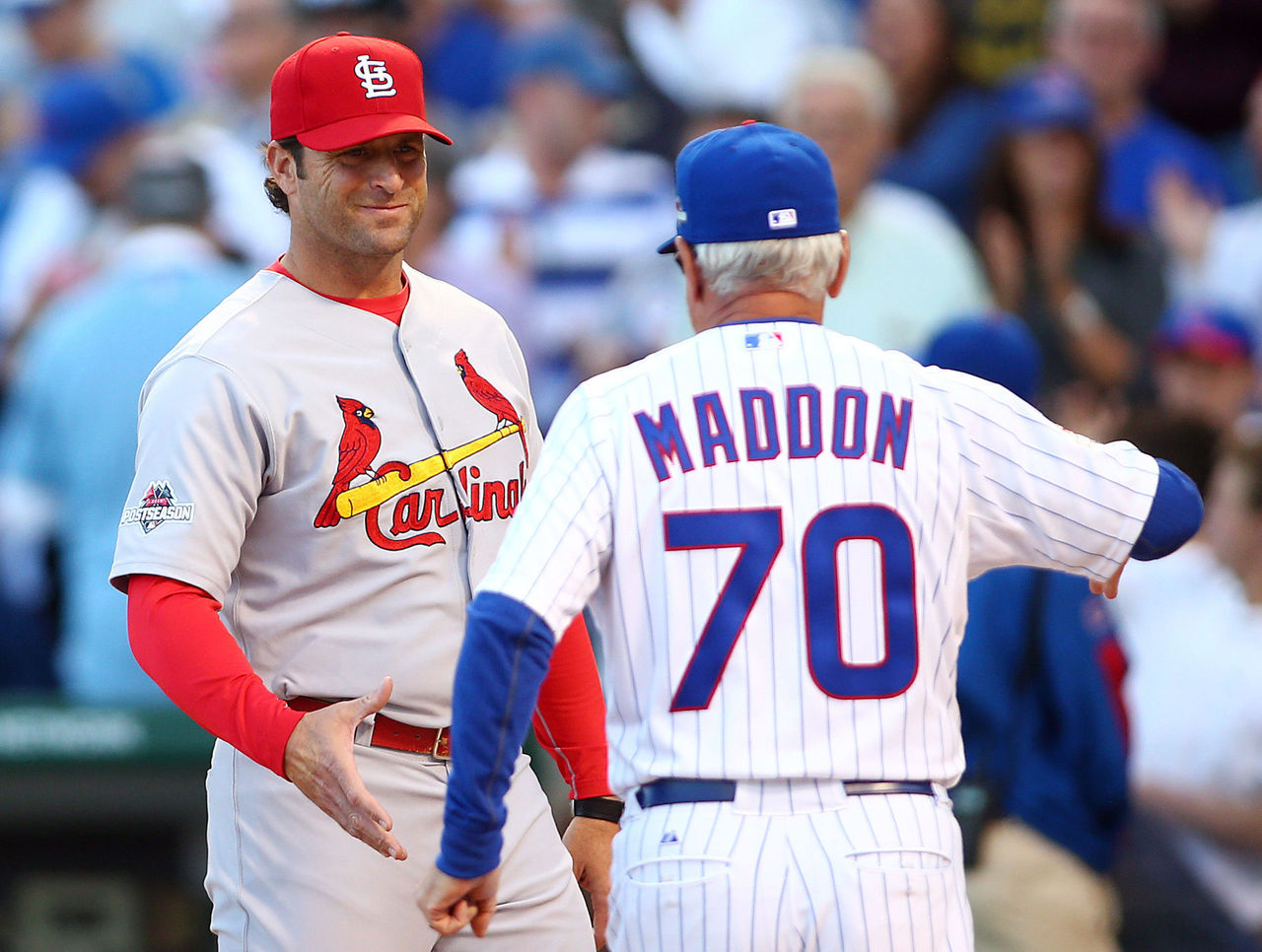Winning Fantasy Baseball Strategy - Head-to-Head Edition
Head-to-head baseball, like other fantasy sports, pits your roster against a new opponent each and every week.
A major positive of the head-to-head format is the fresh start that each week provides. If you failed to update your lineup, weren't active on the waiver wire, or took a big loss, you can atone for your mistakes in seven days time.
Typically, there are ten categories in head-to-head leagues, broken down into a 5-by-5 format. The five categories for hitters are typically runs, homers, RBIs, batting average and stolen bases. For pitchers, the five categories are wins, strikeouts, saves, ERA and WHIP.
To win in head-to-head, all you need to do is defeat your opponent in the majority of those ten categories.
Though there are numerous configurations in head-to-head leagues, these strategies can be applied across the board for improved success.

Exploit League Settings
There are plenty of variations in fantasy formats but the most common ones that present difficulties in head-to-head configurations include acquisition limits and weekly lineup locks.
Weekly locks are simple - your lineup is frozen from Monday through Sunday evening. This format forces you to look ahead in terms of matchups, player trends, and projected at-bats and innings pitched. Maximizing opportunity is key in this format; for example, two-start pitchers carry increased value, while platoon hitters may lose a great deal of theirs.
Weekly acquisition limits are common. To be successful, think critically how the acquisition settings for your league affect your strategy. If there are no limits, then the diligent and attentive owner will be rewarded through constant player streaming. If your league has a weekly or seasonal limit, you will have to be more judicious in your moves.
Weigh the options and assess the impact of every move you make.

Power Hitters & Correlating Categories
There are a few categories that correlate with one another in fantasy baseball. Success in one stat can mean success in others. This correlation can be seen through a simple analysis of a few heavy hitters.
The power hitter is a great asset in H2H because he can contribute in three categories: HRs, RBIs and runs. This explains why power hitters go earlier in H2H - and why you need to make them a priority in the first few rounds. Remember - a solo homer helps out in every category but stolen bases.
Players like Josh Donaldson, Chris Davis, Jose Bautista, and Nolan Arenado are among the best multi-category contributors. The chart below shows how each player ranked in those three counting categories last season:
| NAME | HR | RBI | RUNS |
|---|---|---|---|
| Nolan Arenado | 3 | 1 | 17 |
| Jose Bautista | 7 | 4 | 4 |
| Chris Davis | 1 | 3 | 13 |
| Josh Donaldson | 5 | 2 | 1 |
It's unlikely those four end up on the same fantasy team, but owners should take some time before the draft to identify players that contribute in a variety of categories in order to maximize the value of each pick.
Here are a few players to keep an eye on as the draft progresses: Matt Kemp, Shin-Soo Choo, Adrian Beltre, Kendrys Morales, and Trevor Plouffe.

Streaming to Win Specific Categories
Every week you will be faced with a new opponent and a unique lineup. Before your matchup starts, take a look at your opponent's roster composition. Will you get hammered in home runs? Are stolen bases a guaranteed win? If you can break down how the points will likely be scored, you can tweak your roster accordingly.
In certain cases, it might be wise to put in a category-specific waiver claim. If you and your opponent are dead-even in stolen bases and you have the ability to add a player, place a claim for a steals specialist that can put you over the hump. It may be the difference between tying 5-5 and winning 6-4.
This strategy often comes into play later in the season when winning or losing a week has a significant impact on your playoff chances. This often applies to steals, home runs, and pitching categories like wins and Ks, as they are easier to predict on a week-to-week basis based on past performance.
Remember to check acquisition limits and your league format before you commit.

Mid-Season Evaluation
At the halfway point, take a look at your scoring record in each category. Is your team well-balanced with the ability to win any category? Or do you rely on winning categories X, Y, and Z each week?
Ultimately, you will need to consider the sustainability of your scoring and whether or not it's championship-caliber.
If you feel the need to make big changes, a trade is your best option. You may have to sacrifice a category or two at this point, but if, for example, your scoring record shows a recurring deficiency in steals, it might be time to abandon them entirely and bolster elsewhere.
If your scoring record is already strong across the board, a minor trade or an acute waiver addition can help you bolster a category or two.

If Necessary, Go Category-Specific Late
After this evaluation, you should have a good grasp of the quality of your team. With this in mind, it may be an effective strategy to go category-specific later in the season once your place in the standings is clear.
For example, if you own a player that dominates in just one category, like Billy Hamilton, yet you still lose the steals category, it's time to move that asset. In this scenario, Hamilton provides no value to your team if his best category is one you lose every week. At this point, abandon steals, trade Hamilton, and acquire a specialist elsewhere.
Conceding a category outright is risky - but if you're ready to jeopardize two categories to dominate two others, then pull the trigger. Finishing with a team that continually goes 4-6 or 5-5 for the week isn't likely to contend for your league championship.